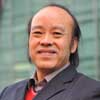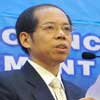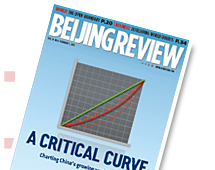 |
 | |  | |
"The idea of 'getting some people rich first' was put forward by former Chinese leader Deng Xiaoping. It's the right path, but lagging political reforms have led to income inequality."
Huang Zongliang, a Peking University politics professor, speaking to Xinhua News Agency on January 27
"If the country's grain output will not speed up, a possible food shortage will threaten the progress of urbanization."
Chen Xiwen, Deputy Director of the Leading Group on Rural Work under the Central Committee of Communist Party of China, warning on January 26. Although China produced 159 million additional tons of grain last year compared to 2003, the country's grain imports hit a record high of 72.3 million tons last year
"I suggest the government set up regulations and policies to classify wasting food as a crime."
Yuan Longping, an academician of the Chinese Academy of Engineering and a hybrid rice expert, speaking to the media on January 23. According to research by China Agricultural University, 8 million tons of food protein and 3 million tons of fat were wasted in China during 2007 and 2008
"More students are becoming interested in China every year. If you put the number of scholars studying Chinese and the country's GDP on a graph, they match perfectly."
Guy S. Alitto, a professor at the University of Chicago, speaking to China Daily on January 24. According to a report from the National Research Center of Overseas Sinology in Beijing, in 1963 there were 33 people in the United States with a doctorate in Chinese studies. However, by 1993, there were more than 10,000 China specialists working for the government or universities, or in business and the media
"I'm so thrilled when I meet someone who can understand my dialect."
Deng Chengying, 55, from Jingzhou, Hubei Province, who moved to Shanghai to look after her grandson, relating the difficulties of adapting to a new environment on January 26. In China, grandparents are migrating from their homes to take care of their grandchildren | |
"The idea of 'getting some people rich first' was put forward by former Chinese leader Deng Xiaoping. It's the right path, but lagging political reforms have led to income inequality."
Huang Zongliang, a Peking University politics professor, speaking to Xinhua News Agency on January 27
"If the country's grain output will not speed up, a possible food shortage will threaten the progress of urbanization."
Chen Xiwen, Deputy Director of the Leading Group on Rural Work under the Central Committee of Communist Party of China, warning on January 26. Although China produced 159 million additional tons of grain last year compared to 2003, the country's grain imports hit a record high of 72.3 million tons last year
"I suggest the government set up regulations and policies to classify wasting food as a crime."
Yuan Longping, an academician of the Chinese Academy of Engineering and a hybrid rice expert, speaking to the media on January 23. According to research by China Agricultural University, 8 million tons of food protein and 3 million tons of fat were wasted in China during 2007 and 2008
"More students are becoming interested in China every year. If you put the number of scholars studying Chinese and the country's GDP on a graph, they match perfectly."
Guy S. Alitto, a professor at the University of Chicago, speaking to China Daily on January 24. According to a report from the National Research Center of Overseas Sinology in Beijing, in 1963 there were 33 people in the United States with a doctorate in Chinese studies. However, by 1993, there were more than 10,000 China specialists working for the government or universities, or in business and the media
"I'm so thrilled when I meet someone who can understand my dialect."
Deng Chengying, 55, from Jingzhou, Hubei Province, who moved to Shanghai to look after her grandson, relating the difficulties of adapting to a new environment on January 26. In China, grandparents are migrating from their homes to take care of their grandchildren | |
|
|
|
 |
Social Welfare System
South Reviews
January 16
According to a meeting of the State Council, chaired by Premier Wen Jiabao on January 9, retiree pensions were increased for the ninth consecutive year to 1,900 yuan ($301.6) per person a month. However, aimed at improving social welfare, the move has triggered calls for ending the twin-track pension scheme.
Under the system, effective from the early 1990s, government and institution employee contributions are paid from the fiscal budget, while enterprise workers are responsible for their own fees.
Urbanization Barriers
Caixin
January 7
The speed of China's urbanization is picking up. The national development and reform conference held on December 28, 2012, vowed to improve the quality and level of urbanization and ensure basic public services to all permanent residents.
In 2011, China's urbanization rate reached 51.27 percent, which meant that for the first time urban residents outnumbered rural dwellers in the country. However, at the same time, people realized that urbanization meant not only large-scale expansion of city territories and the erection of industrial parks, but also the massive migration of rural inhabitants. | |
| more>> |
|



















